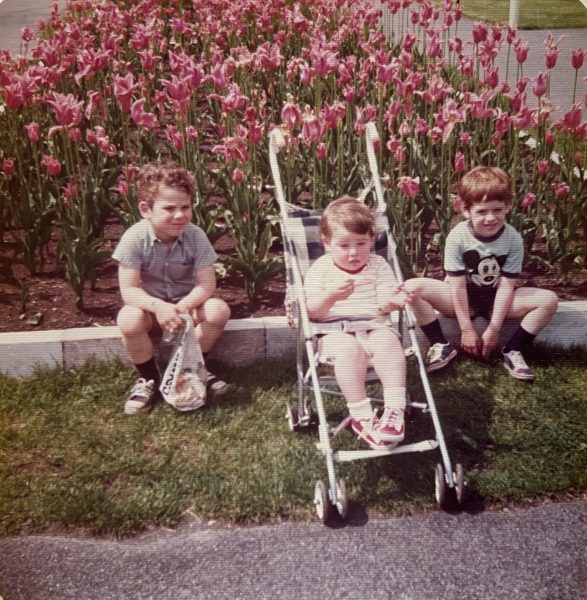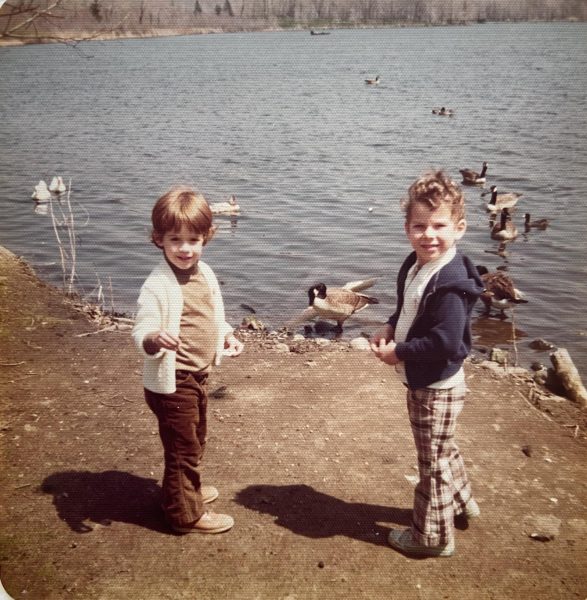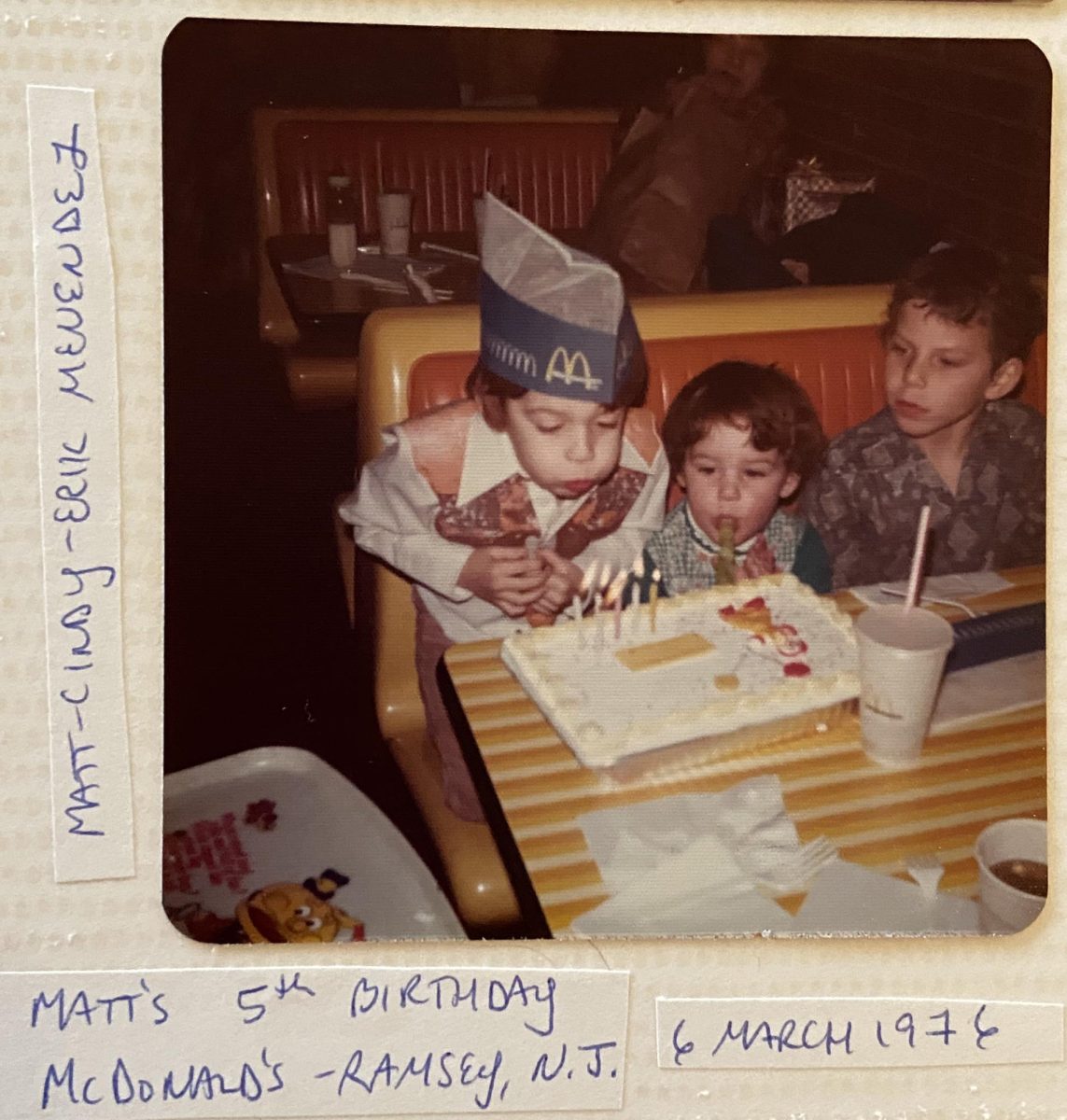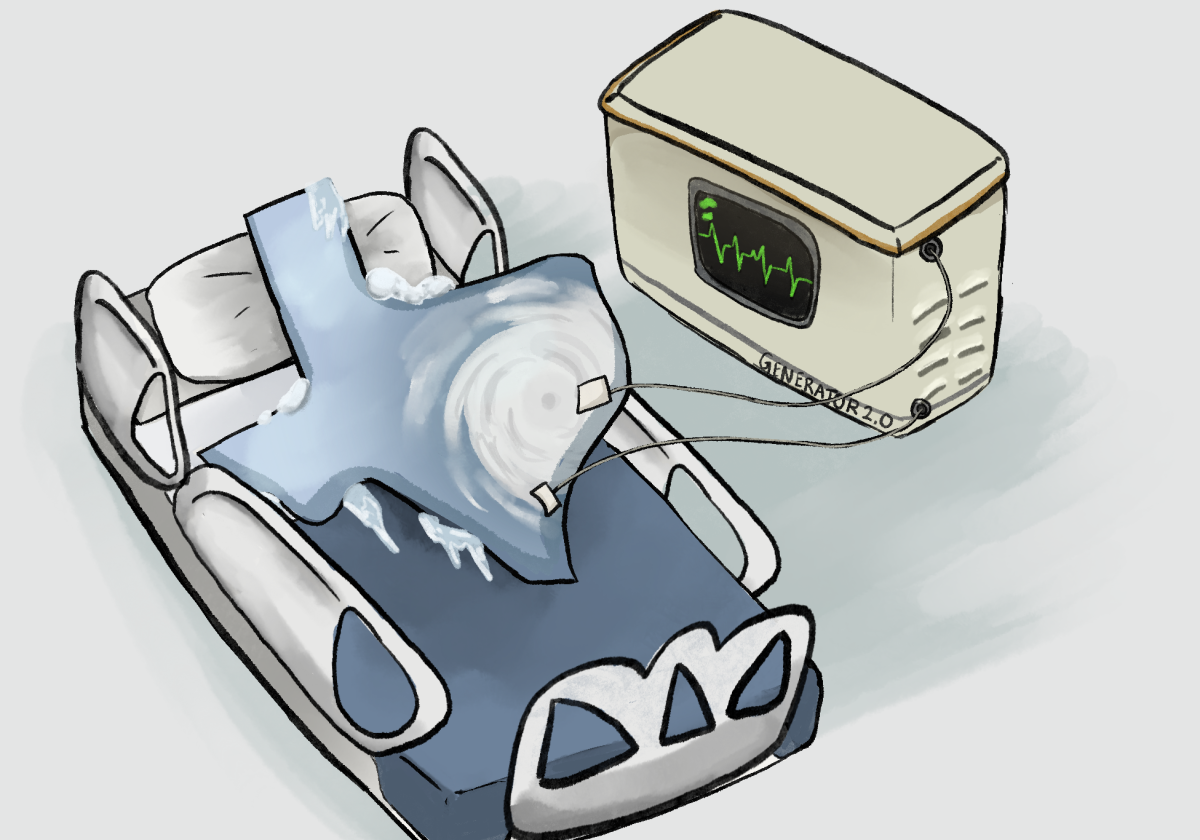In 1976, Matt Stein blew out the candles on his fifth birthday cake surrounded by other children at a local McDonald’s. A grainy snapshot, ripped from a family album, depicts Stein’s little sister Cindy perched next to a preschool pal with a head of wavy brown hair and a paisley print shirt.
His name was Erik Menendez.
Stein, husband of Upper School French teacher Shelley Stein (‘88), grew up carpooling to preschool and enjoying playdates with a classmate who would later become a perpetrator of a crime that took the nation by storm.
On Aug. 20 1989, 18-year-old Erik and his 21-year-old brother Lyle Menendez shot and killed their parents in their Beverly Hills home. What ensued was a lengthy murder trial which revealed the dark side of what seemed to be a picture-perfect family, bringing to light the years of abuse the boys suffered at the hands of their parents.
Back in their small town in suburban New York, the Menendez and Stein families were in the same carpool group, taking turns buying snacks and taking the kids to school.
One day, Stein’s mother was running errands right after Mrs. Menendez picked up Stein for carpool, when she saw something disturbing.
“Mrs. Menendez had gone into the supermarket to get snacks because she forgot to buy them ahead of time,” Stein said, recalling his mother’s oft-told story. “And the five of us, just four years old, were left alone in the car.”

Mrs. Stein found this parenting offense unacceptable, even in the seatbelt-less, free-range 1970s. Stein says his mother, “a typical New Yorker,” confronted Mrs. Menendez.
“There was something strange about them,” said Stein.
The new Netflix docuseries, “Monsters: The Lyle and Erik Menendez Story,” has kept the case alive among Gen Z.
The docuseries gained fame for more than just the case it featured. Some fans swooned over Nicholas Chavez and Cooper Koch, the actors who played the Menendez brothers. Fans made “edits” —clips featuring the actors alongside suggestive music—which can glorify and sexualize a person.
These edits went viral, not only creating a fanbase for the actors, but for the brothers themselves. Yet some say this support was not rooted in empathy for the struggles they endured leading to their incarceration; rather, fans romanticized the brothers for their looks.
“I understand that there are a lot of factors for why the brothers did what they did,” junior Mimi Villa said. “But I still find it weird that Gen Z romanticizes murderers.”
Villa, a true crime enthusiast, already knew some background information about the case, but really dove into the details when she came across the viral edit of the actors.

Fans noticed that the edits of the actors were suggestive in nature. Some feel that the show often exploited the actors’ conventionally attractive features, opening a door for fans to fetishize the siblings.
While some argue that the oversexualization of the Menendez brothers is unwarranted, others suggest that the publicity helps garner support for them. The initial trial, which disregarded evidence of sexual and verbal abuse at the hands of the Menendez parents, is now being revisited. A judge will consider if new evidence of sexual abuse will result in a shorter sentence.
Although Stein does not have many early memories of the Menendez brothers, he has a handful of photos and evidence that these “monsters” were once kids living in a suburban community, eating McDonald’s Happy Meals and waking up every morning for preschool.
“I would just always see the case in the newspaper and go, Oh, Erik.”


















